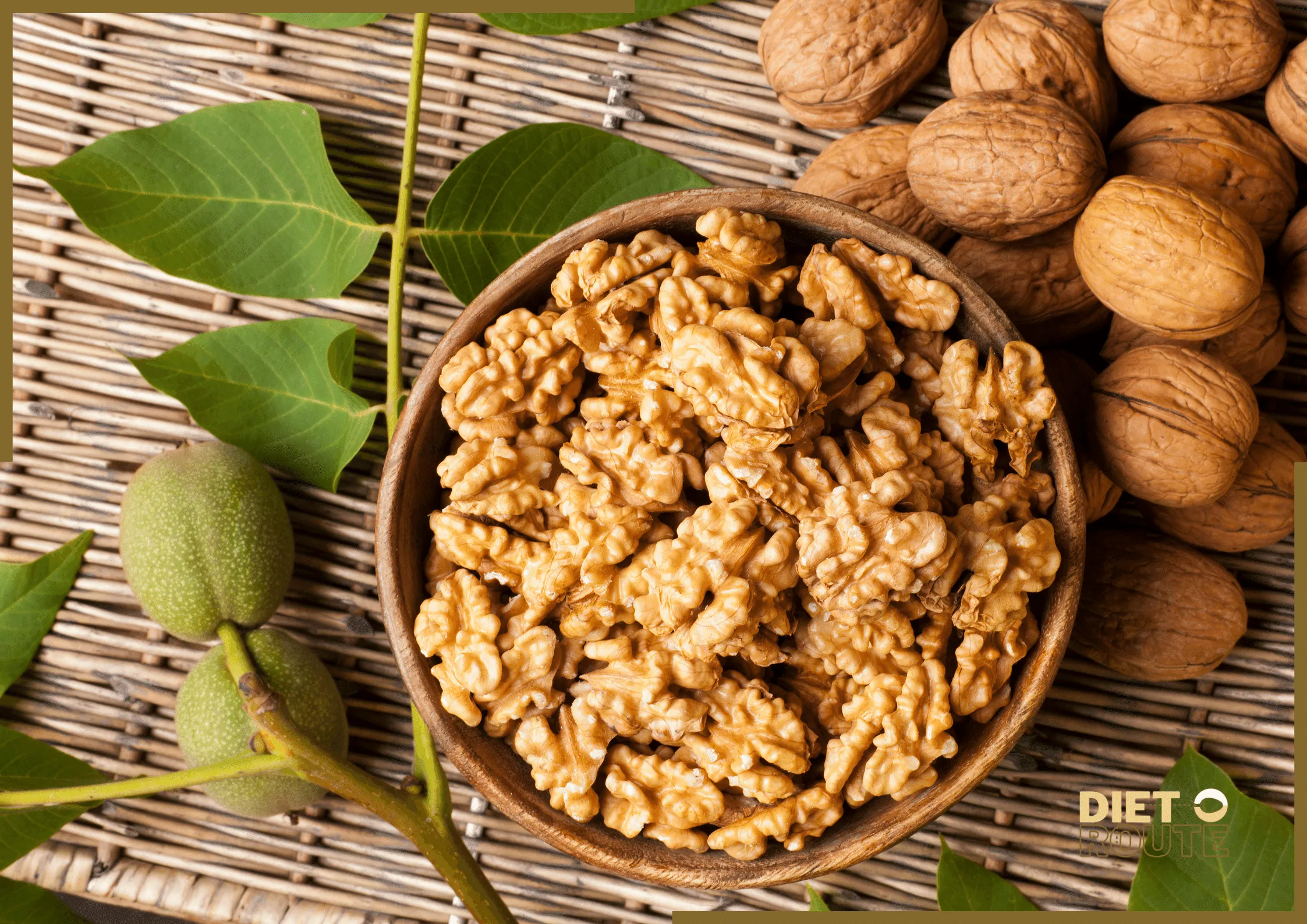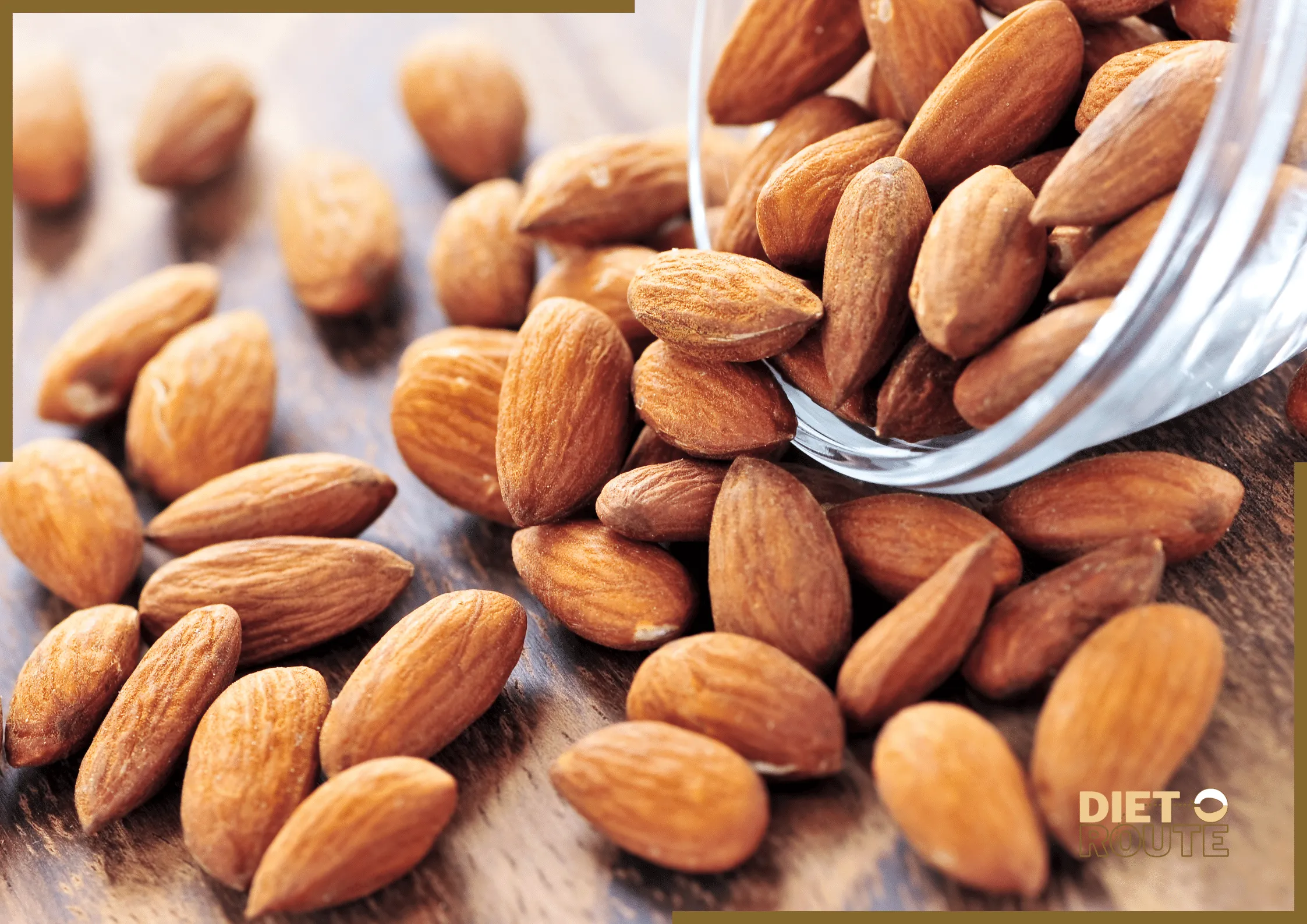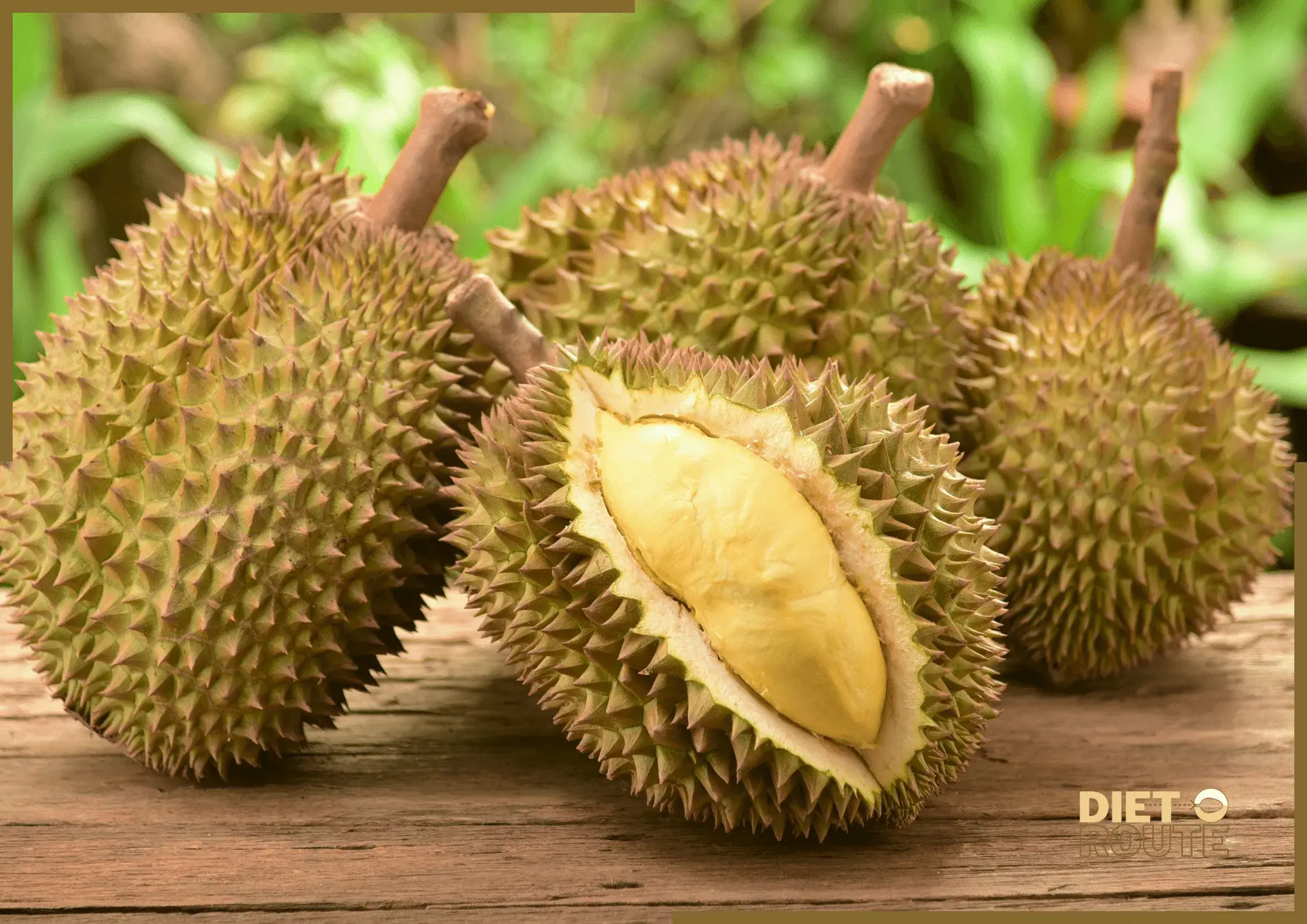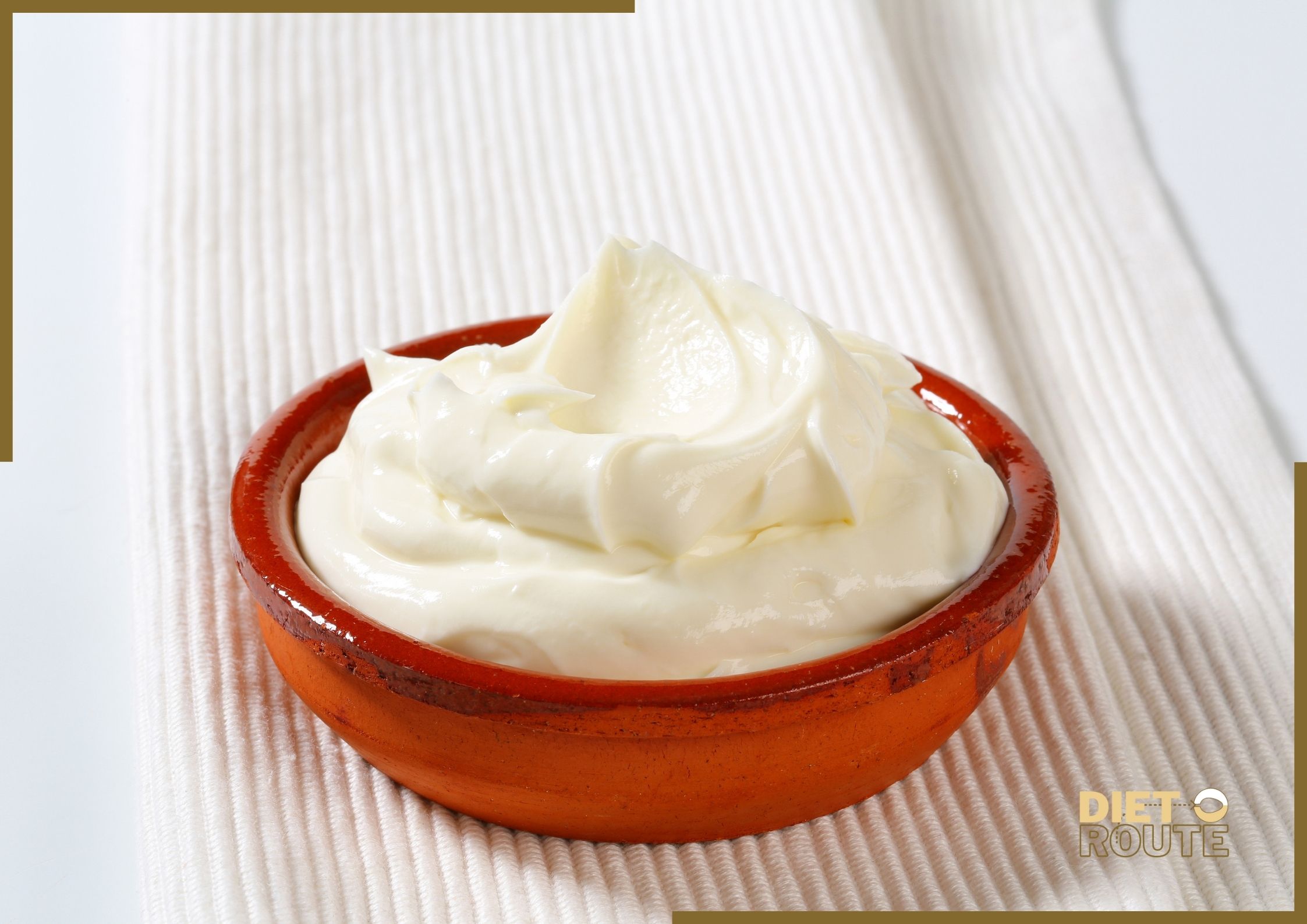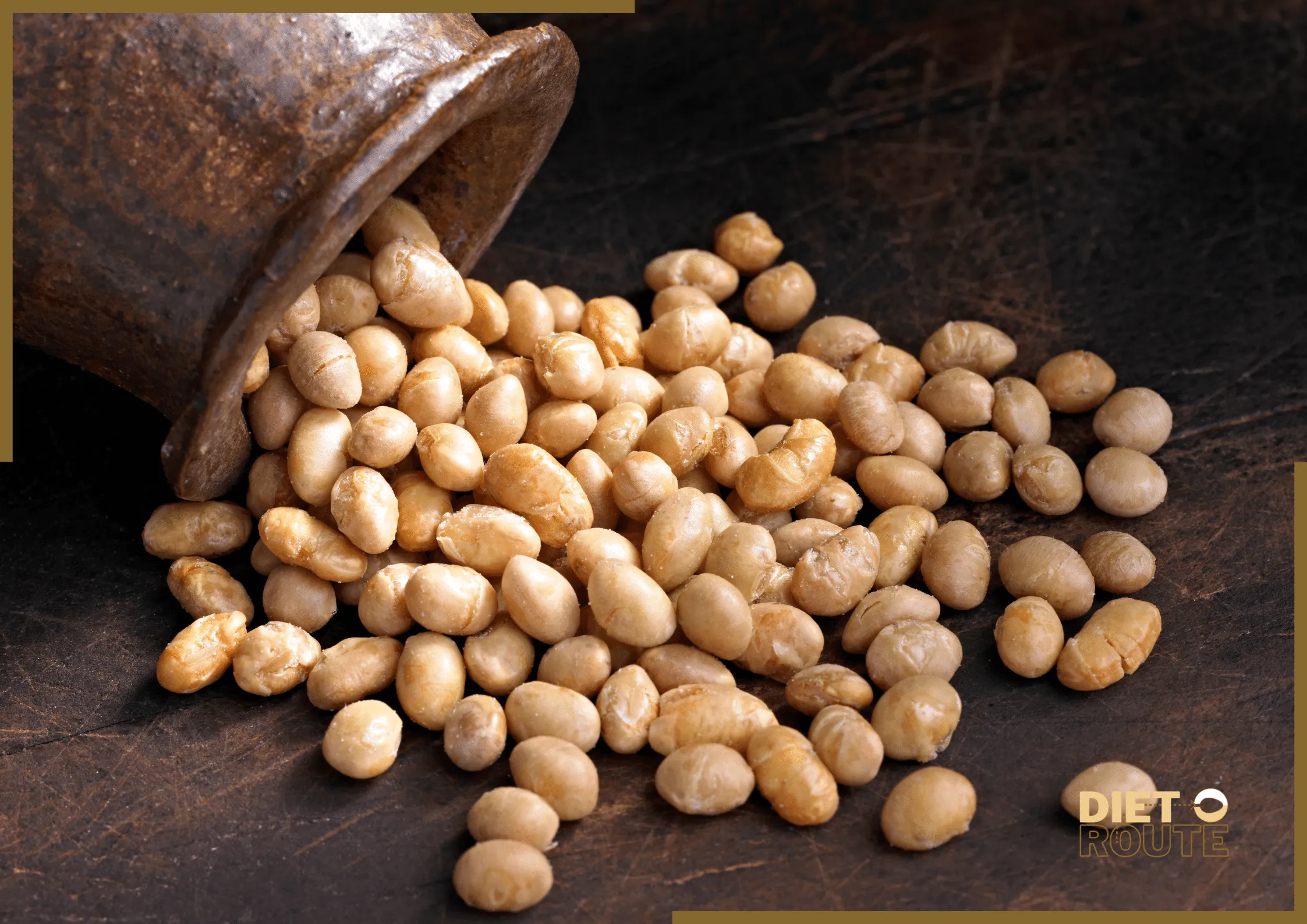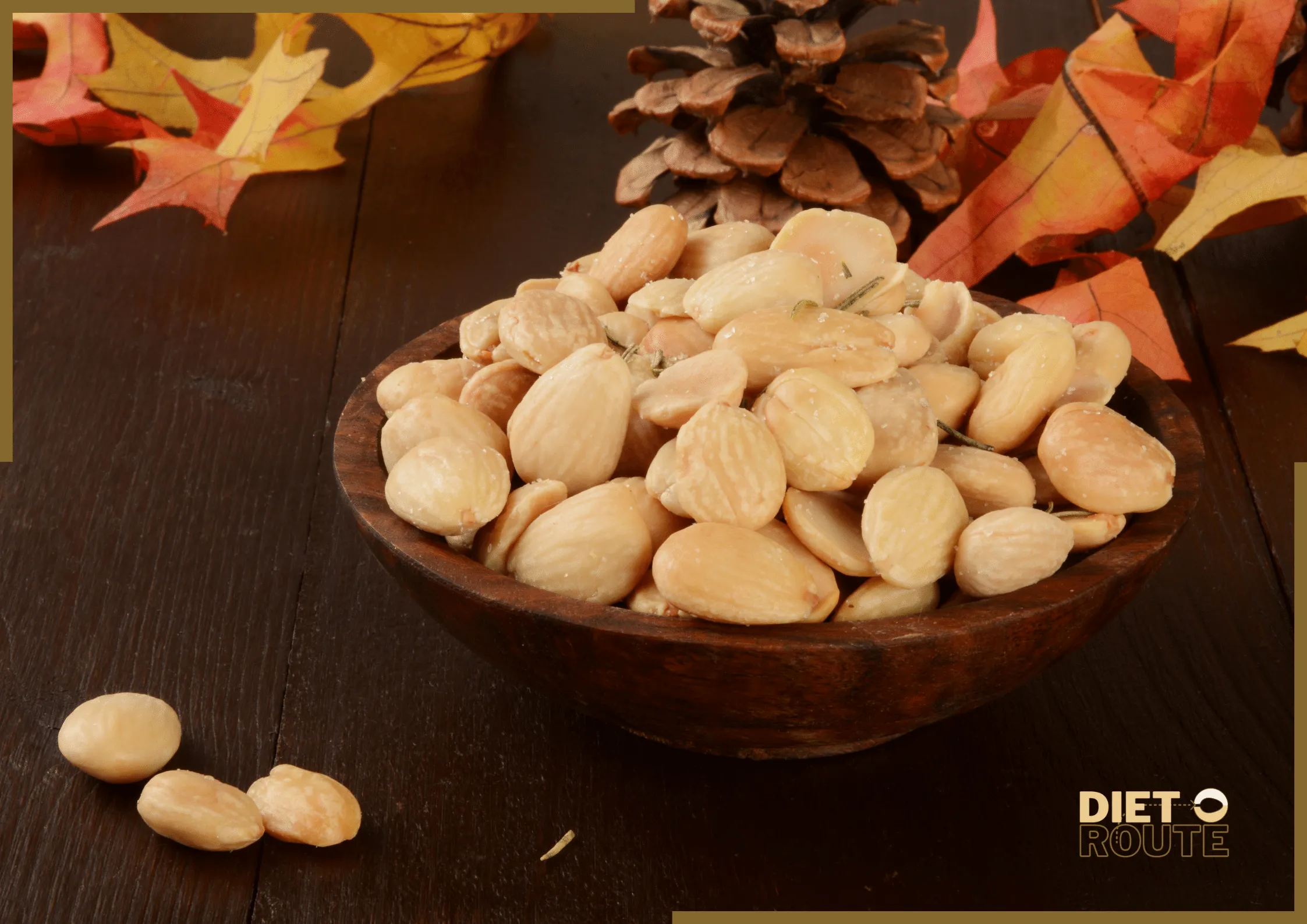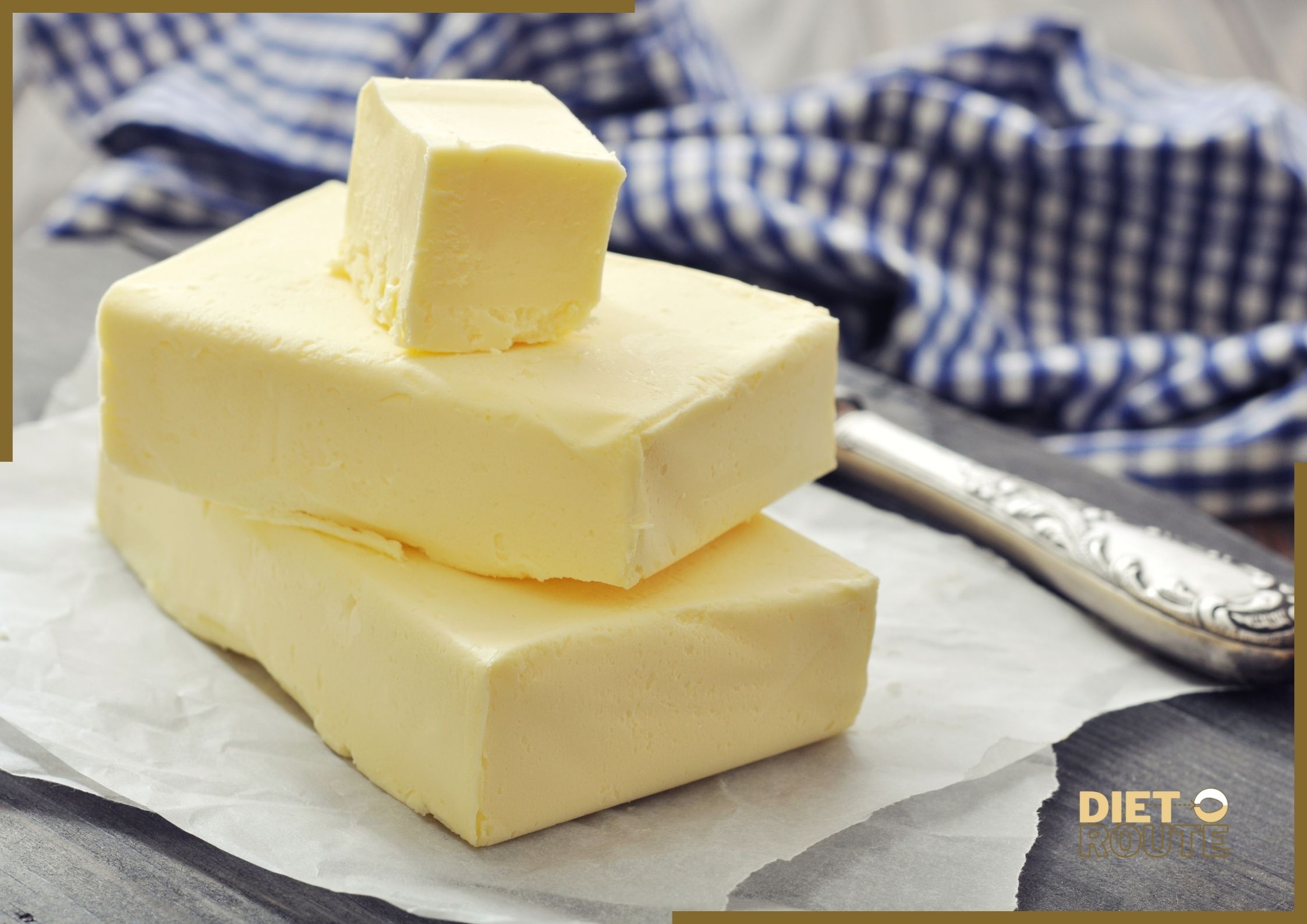Table of Contents
Introduction
Walnuts are a highly nutritious type of nut that provide numerous health advantages. This article presents the nutritional value in a tabular format, including the percentage of daily value. In this article, we’ll explore the advantages and disadvantages of incorporating these healthy nuts into your diet. Additionally, we’ll provide answers to ten commonly asked questions (FAQs).
Nutritional Value Approximately 100g
The values provided are approximate can vary depending on the size and ripeness.
| Nutrient | Amount Per 100g | % Daily Value* |
|---|---|---|
| Calories | 654 kcal | 33% |
| Carbohydrates | 13.7 g | 5% |
| Fiber | 6.7 g | 27% |
| Sugars | 2.6 g | – |
| Protein | 15.2 g | 30% |
| Fat | 65.2 g | 100% |
| Vitamin E | 0.7 mg | 5% |
| Magnesium | 158 mg | 40% |
| Calcium | 98 mg | 10% |
| Iron | 2.9 mg | 16% |
*Percent Daily Values (% DV) are based on a 2,000-calorie diet.
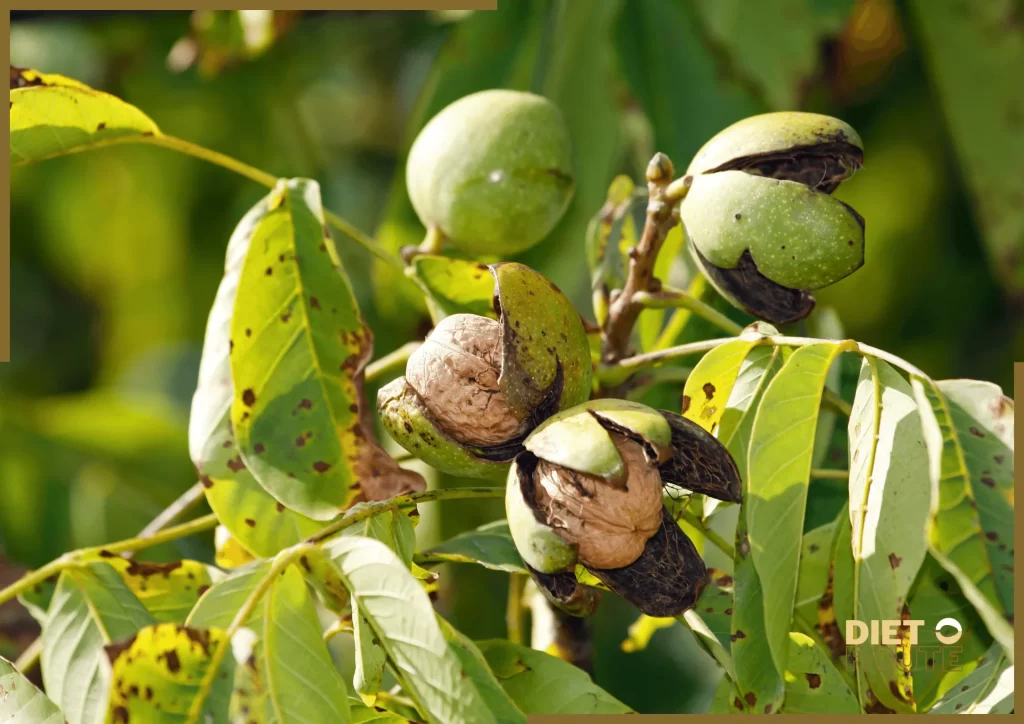
Pros
1.Walnuts are a great source of heart-healthy omega-3 fatty acids that can potentially lower the risk of heart disease.
2. They are a nutrient-dense food that contains essential nutrients such as protein, fiber, healthy fats, vitamin E, magnesium, and iron.
3. The omega-3 fatty acids and antioxidants found in these healthy nuts have been linked to enhanced brain health and may aid in safeguarding against cognitive decline.
4. They possess antioxidant properties that aid in safeguarding cells against inflammation and oxidative damage.
Cons
1. These nuts are calorie-dense, making portion control crucial, particularly for those following a calorie-restricted diet.
2. It is possible that certain individuals may have an allergy to these nuts. For such individuals, it is recommended to refrain from consuming walnuts and consult with a medical professional for guidance.
Frequently Asked Questions (FAQs)
1.What is the recommended daily intake of walnuts?
It is advisable to incorporate a daily intake of approximately 30 grams, or a handful, into your diet to reap their health advantages.
2. Are walnuts a rich source of omega-3 fatty acids?
Yes, they are a rich source of plant-based omega-3 fatty acids that are known to promote heart health and enhance brain function.
3. Can consuming walnuts aid in reducing cholesterol levels?
Eating these healthy nuts can improve your cholesterol levels due to the combination of healthy fats and fiber they contain.
4. Can walnuts help with weight loss?
Despite their high calorie content, they can be a satisfying snack that promotes a feeling of fullness, potentially aiding in weight management.
5. Is it possible to incorporate walnuts into a vegetarian or vegan diet?
Yes, they can be a great source of protein and healthy fats for those who follow a vegetarian or vegan diet.
6. Are walnuts good for pregnancy?
These are a nutritious food that contains essential nutrients such as folate and omega-3 fatty acids. These nutrients are crucial for the development of the fetus. It is recommended to seek personalized advice from your healthcare provider.
7. Is it safe for people with nut allergies to eat walnuts?
Individuals who are allergic to nuts should consult with a medical professional to prevent any potential allergic reactions.
8. What is the best way to store walnuts to keep them fresh?
These nuts should be stored in an airtight container in a cool and dry place to keep them fresh and prevent rancidity.
9. Can walnuts be used for cooking and baking?
Yes, incorporating into your recipes can enhance their flavor and nutrition. They can be a tasty addition to baked goods, salads, and stir-fries.
10. What are the possible side effects of eating walnuts?
They are a safe food for most people, but overconsumption may lead to digestive problems or allergic reactions in those who are susceptible.
In a Nut Shell
Walnuts are a highly nutritious food that offers a range of health benefits. These foods are abundant in nourishing fats, protein, fiber, and vital nutrients such as magnesium and vitamin E. Incorporating these healthy nuts into your daily diet can boost heart health, enhance brain function, and offer antioxidant benefits. Portion control is crucial when consuming high calorie foods. For individuals with allergies or dietary restrictions, it is recommended to seek advice from a healthcare professional.
